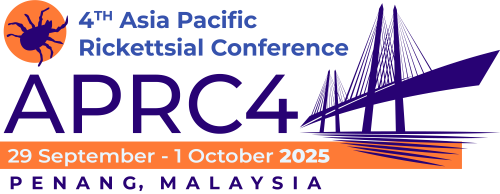Prof DrKun-Hsien Tsai Associate Dean, Director, ProfessorInstitute of Environmental and Occupational Health Sciences, and Global Health Program, College of Public Health, National Taiwan University

Our laboratory is a forward-thinking and multidisciplinary team with world-leading expertise in vector-borne diseases, vector ecology, and vector control. We are recognized for our balance in research and practice and for our international collaborative works.
Dengue fever. Half of the world’s population is now at risk of dengue according to the World Health Organization (WHO). My research group works on the development of eco-friendly and sustainable measures to control dengue vectors, including biological control methods like copepods, parasitic fungi, and Wolbachia, and physical control methods like short-waved blue light and UVC light, and specific chemical control methods like pyriproxyfen. Students in our laboratory are encouraged to deliver health education to school children and community members.
Rickettsioses. Rickettsioses are among the most common neglected vector-borne diseases. Our laboratory actively monitors rickettsial infections in arthropods, wild animal hosts, and humans, resulting in the identification of Rickettsia felis infection, anaplasmosis, and ehrlichiosis in Taiwan. Projects of development of diagnostic tools for scrub typhus using recombinant proteins were carried out by collaborating with the US Navy Medical Research Center. Another project of novel identification technique applying MALDI-TOF mass spectrometry and genomic analysis is being carried out by collaborating with Dr. Pierre-Edouard Fournier of the Research Team 6 of Vectors Tropical and Mediterranean Infections (VITROME) Research Unit, in IHU Mediterranean Infection in Marseille.
Vector ecology. Approximately 135 species of mosquitoes have been recorded in Taiwan, but their distribution and vector competence are not updated. Our laboratory systemically survey mosquitoes as well as other vectors, such as ticks, chiggers, and fleas and nuisance arthropods, such as biting midges and bed bugs in Taiwan. The whole genomes of Leptotrombidium deliense and Leptotrombidium scutellare are being sequenced by collaborating with the US Navy Medical Research Center. A project of investigation of the competence of Culex tritaeniorhynchus to transmit yellow fever virus is being carried out by collaborating with Pasteur Institute in Paris.
Global health. As an entomologist, I was invited to join the Anti-malaria Mission in the Democratic Republic of Sao-Tome and Principe (DRSTP), West-Central Africa. Our team has successfully reduced malaria incidence to a slide positive rate less than 5%, which has satisfied the WHO criteria of pre-elimination stage, in certain districts by integrated pest management. To further improve health of the residents, our team used our expertise and identified several vector-borne infectious diseases that have never been reported in the nation. After the DRSTP, our laboratory worked on serological studies of dengue fever and scrub typhus with a non-governmental organization in Malawi as well as dengue fever and other vector-borne diseases with Universitas Semarang in Indonesia.
Day 3 - 1st October 2025
| Time | Session |
|---|---|
|
09:00
09:30
|
Andaman Grand Ballroom
|
